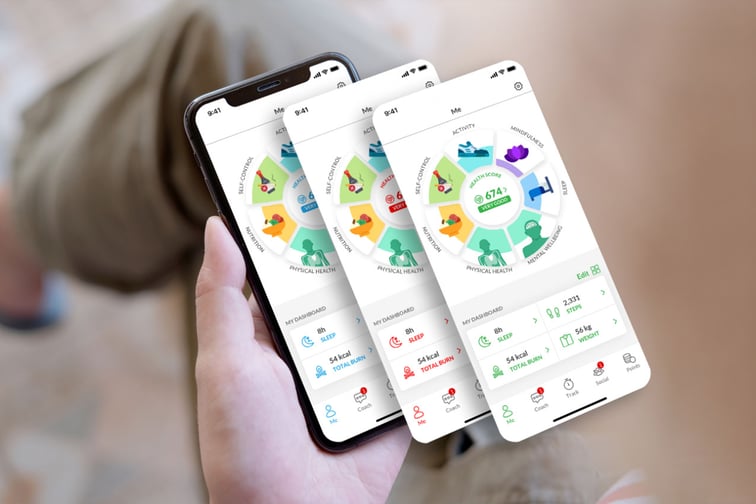

Nearly three million Asians were reported to be actively seeking health insurance by the end of 2020, as stated in a recent study. However significant this number may seem; it still portrays only a miniscule part of the 4.6 billion Asian population.
With healthcare costs increasing and governments suffering the aftermath of the COVID-19 pandemic, health insurers have a unique opportunity at hand now; to close the health protection gap in Asia and increase customer acquisition with a steady growth plan. However, long-term trends – which have been accelerated by the COVID-19 pandemic – are pointing at how insurers need to reinvent themselves and their value proposition, and it can be summarised in one single word: wellbeing.
The current issue with most Asian operators is that they are far too focused on mortality and morbidity, narrowing their transactional view to only traditional risk charts rather than looking at the customer in front of them and getting to truly know their needs and expectations, building a relational insurance process. Customer centricity is here to stay, and Asian insurers must learn how to pivot their mindset towards offering a more comprehensive value proposition that includes preventive care, wellbeing programs and disease prevention.
This leads to the birth of Integrated Insurance Operators, who offer consumer-centric, digital health ecosystems that meet new consumer demands and build loyalty among stakeholders. Successful health insurers must emphasise customers’ continued wellbeing, provide expanded services, and build an end-to-end customer journey that allows for both online and offline engagement.
To make the shift toward wellbeing as a core value proposition, insurers will need to be thoughtful about whether they build the necessary capabilities in-house, buy them, or partner to acquire them. Partnerships can be a source of new customers and help enhance insurers’ value propositions. They also allow for a much shorter time to market when launching a new digital ecosystem.
We know that insurers that succeed and grow over the next 10 years, will be those that offer value-added digital health services and build a high-touchpoint relationship with their customers and stakeholders. With the implementation of a Digital Health Engagement Platform (DHEP) insurers can gather several benefits:
dacadoo offers a wide range of solutions for health and life insurers. Our Digital Health Engagement Platform (DHEP) uses motivational techniques from behavioural science experts. Our award-winning Health Score platform is available as a white label or API solution and includes functions drawn from gamification and social media, as well as offering automated coaching to engage users in a personalised manner. dacadoo is a win-win solution, improving policyholders’ health while saving insurers time and money.
Additionally, our Health Risk Quantification system offers a numerical way to assess users’ health, allowing for accelerated underwriting. As a leading health-scoring technology provider, our technology is based on more than 300 million person-years of clinical data.
Download our free white paper on the Integrated Insurance Operator.
